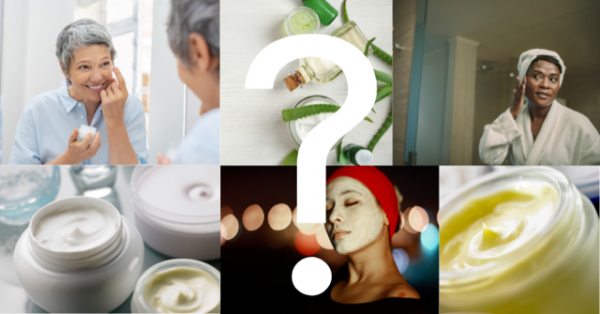
We are justly proud of our skin’s permeability barrier, which does such an admirable job of holding our water in – keeping our interior moist as we move about in a dry world. This same barrier also protects us from absorbing many substances with which we come into contact – to the point that we often don’t think about it when we put various lotions and creams on our skin.
Yet sometimes our skin barrier can fail to protect us from poisons in our environment.
A recent health newsletter told an alarming story of a California woman who became comatose after using a skin moisturizer that had been adulterated with mercury. She was using the cream in an effort to lighten her skin color. Her product originated in Mexico, and was a common, off the shelf moisturizer which had been adulterated with methylmercury – (the metal used in thermometers). Another common mercury adulterant in skin lightening creams is ‘calomel’ (mercury chloride). The problem, of course, is that mercury, even at low blood concentrations, is highly toxic, and can cause a host of neurological abnormalities.
The use of skin lightening products is very common among Latino, Asian and African populations. While it is illegal in the US for skin care products to contain these mercury compounds, the FDA seems unable to stem the steady flow of adulterated products from abroad. Indeed, these agents are widely available on the internet, and by sellers such as Amazon.
A survey of more than 500 skin-lightening products sold in the US, Taiwan, China, Thailand, Japan and Sri Lanka and available online, 6% contained mercury in levels 1000 times higher than the FDA’s limit of 1ppm. In another study, more than a third of skin lightening products in Mexico are contaminated with mercury. As further evidence that the mercury in these skin creams is getting absorbed, the levels of mercury in urine are higher in people who use skin lightening creams than those who do not.
Unfortunately, the public has little to guide them when sifting through the myriad skin-lightening products available online as skin-lighteners to distinguish between those that are safe versus those that are toxic.
It seems regrettable to us that a darkly pigmented person would want to lighter his or her skin in the first place, because our research has shown that skin which is well-endowed with melanin is simply ‘better’ skin.
Pigmented skin has a better permeability barrier and is more resistant to mechanical trauma – in addition to its well-known better defenses against the damaging rays of sunlight.
We would hope instead for an enlightened world, which would celebrate our human diversity, and would allow all of us to be happy in the skin we were born with.
But this sad story also illuminates one weakness of the skin barrier – though designed to be an efficient water barrier, it does not prevent many organic molecules, particularly if they are lipid (fat)-soluble, from getting inside our bodies. Our water barrier usually does a fine job of keeping water in our bodies, but it has not yet evolved to protect the humans living today from the onslaught of environmental toxins and pollutants – such as the fatty hydrocarbons from automobile and industry exhaust – that now surround us. Hence, it poorly designed to exclude many a toxin, like mercury, from getting in.
To protect ourselves from illegal adulterants like methymercury and calomel, we should certainly avoid using products acquired from outside the US that may have been contaminated.
Unfortunately, just because you purchased a skin-lightening cream online in the US from Amazon or other sellers, doesn’t mean that it is safe. And we probably should think twice before putting products on our skin – asking first, do we need really need this? Remember that for most skin products to have the effect we might desire – to lighten the skin color or dissolve wrinkles, for example – they have to get past the skin’s barrier. But once they get through the barrier, they may cause other effects beyond just the one that was wanted. When in doubt, ask your dermatologist for his or her advice if a product is safe.
Leave a Reply